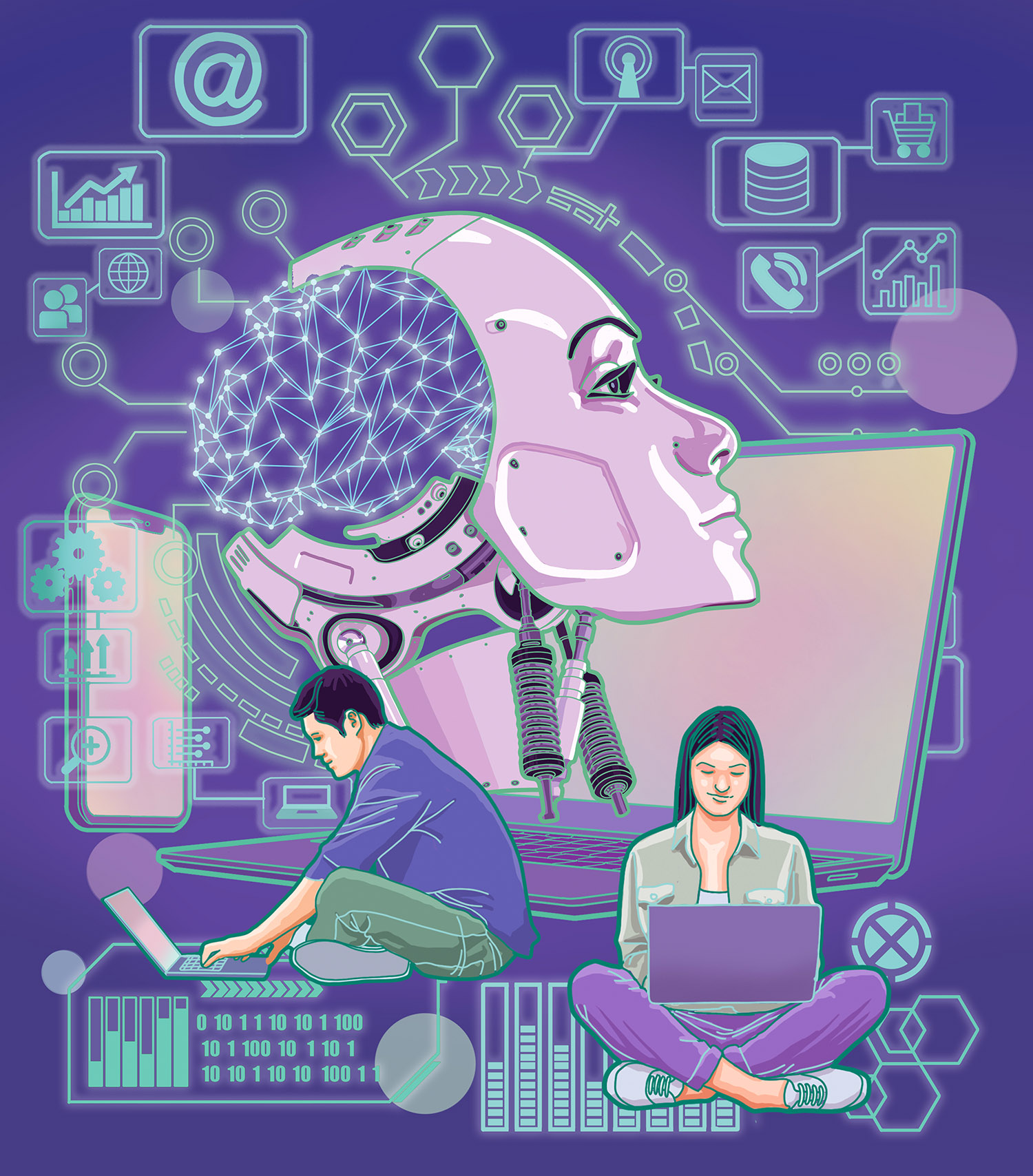
The development of artificial intelligence has entered a pivotal phase. With groundbreaking advancements in large models such as ChatGPT and Sora, AI is approaching what has been termed as "technological singularity".The allure of AI's potential is undeniable, but its immense potential is accompanied by significant risks including deepfakes, frauds and autonomous weapons systems.
The complexities and interconnectedness of AI pose a new global challenge. Hence, building a coordinated global governance framework for AI is no longer optional; it is an urgent necessity.
READ MORE: Chinese vice-premier urges tech innovations for global benefit
AI transcends national boundaries, creating both global opportunities and risks that no country alone can manage. Hence, countries across the world need to work together to eliminate the risks.
The urgency to create an adaptive governance framework is underscored by the rapid, unpredictable growth of AI. Given that AI capabilities are expanding exponentially and large models are becoming increasingly autonomous, the existing AI governance structures can no longer keep pace with the developments. And in the absence of proactive frameworks to deal with emerging risks, AI could outpace regulations, leading to catastrophic consequences.
Therefore, we need to act now, in order to ensure AI benefits humankind rather than spiraling out of human control and harming society.
This is a moment of reckoning for the global community. In 2023, countries and regions across the world began recalibrating their AI strategies, with the United Kingdom hosting the first global summit on AI safety in November 2023 and the Republic of Korea hosting the second in May 2024.
Besides, countries such as the United States, Canada, the UK, Singapore and Japan have set up AI safety research institutes to foster international coordination on critical issues. At the heart of these efforts is the United Nations, which has pushed forward the issue of international governance of AI. In fact, the UN established a high-level AI advisory body in October 2023.
These developments reflect the growing international consensus on strengthening AI governance and cooperation, laying the groundwork for a more integrated, secure global system. But as countries and regions endeavor to establish a comprehensive AI governance mechanism, several obstacles associated with the current mechanism — including the lack of openness, fairness and effectiveness of the current governance processes — stand out.
First, Western countries, driven by their ideological considerations, have created "exclusive circles" that limit broader international participation. This has turned the discussions on AI governance into closed, exclusive affairs which undermines the effectiveness of the discussions and hinders the ability of many countries to engage in the discussions, eroding the trust necessary to reach a global consensus.
Second, many countries in the Global South face serious challenges, including limited infrastructure, lack of technical resources and shortage of talent, making them more vulnerable to the social and economic disruptions caused by AI. As a result, such countries face greater risk of being left behind in the global race of AI.
Third, the existing global AI governance system is fragmented, with countries competing with each other to influence global AI standards and governance. This fragmentation hampers meaningful global cooperation, and weakens the global AI governance framework.
In this context, China's approach to AI governance offers a unique perspective. As one of the global leaders in both AI technology and application, China approaches the challenges of AI governance with a sense of responsibility, and follows a philosophy that can guide the world toward a more inclusive and effective governance system.
Domestically, this philosophy is reflected in a robust legal framework, high technical standards and ethical guidelines for the healthy development of AI. Internationally, to promote multilateral cooperative governance, China has proposed programs such as the Global AI Governance Initiative. China's contribution to the discussions on global AI governance is not simply theoretical; it reflects "Eastern wisdom" which can facilitate open, fair and effective AI governance.
Committed to the idea of a shared destiny for mankind, China views AI governance as a field of cooperation rather than competition. By advocating for the establishment of an open global dialogue platform and inclusive governance mechanism within the UN framework, China supports multilateralism, and promotes pragmatic cooperation and fair participation among countries.
ALSO READ: AI curbs show Biden's rejection of cooperation
Also, China emphasizes the importance of balancing development with security. Recognizing that AI governance is not only about addressing risks but also about meeting the developmental needs of countries, China stresses that the failure to achieve development constitutes the greatest insecurity. That's why it supports UN initiatives for AI capacity building, and has proposed the "AI Capacity-Building Action Plan for Good and for All "to help bridge the global AI divide and foster inclusive and balanced global development.
China is exploring a flexible governance model to address AI's unique challenges by laying emphasis on collaboration across sectors, bringing together governments, the scientific community and industries to collectively manage risks and improve safety. By encouraging the sharing of best practices and fostering cooperative solutions, China aims to create a governance system that is responsive and adaptable to the fast-evolving AI landscape.
Through these contributions, China is laying the groundwork for a more open, fair and effective international AI governance mechanism. At a time when the world is grappling with the implications of AI, China offers a path that prioritizes collective security, balanced development and a shared vision for the future of this transformative technology.
The author is an associate dean of the Institute for AI International Governance, Tsinghua University.
The views don't necessarily reflect those of China Daily.


